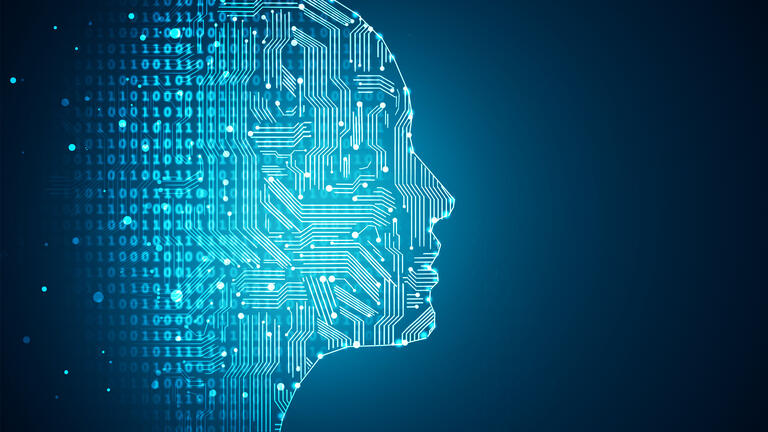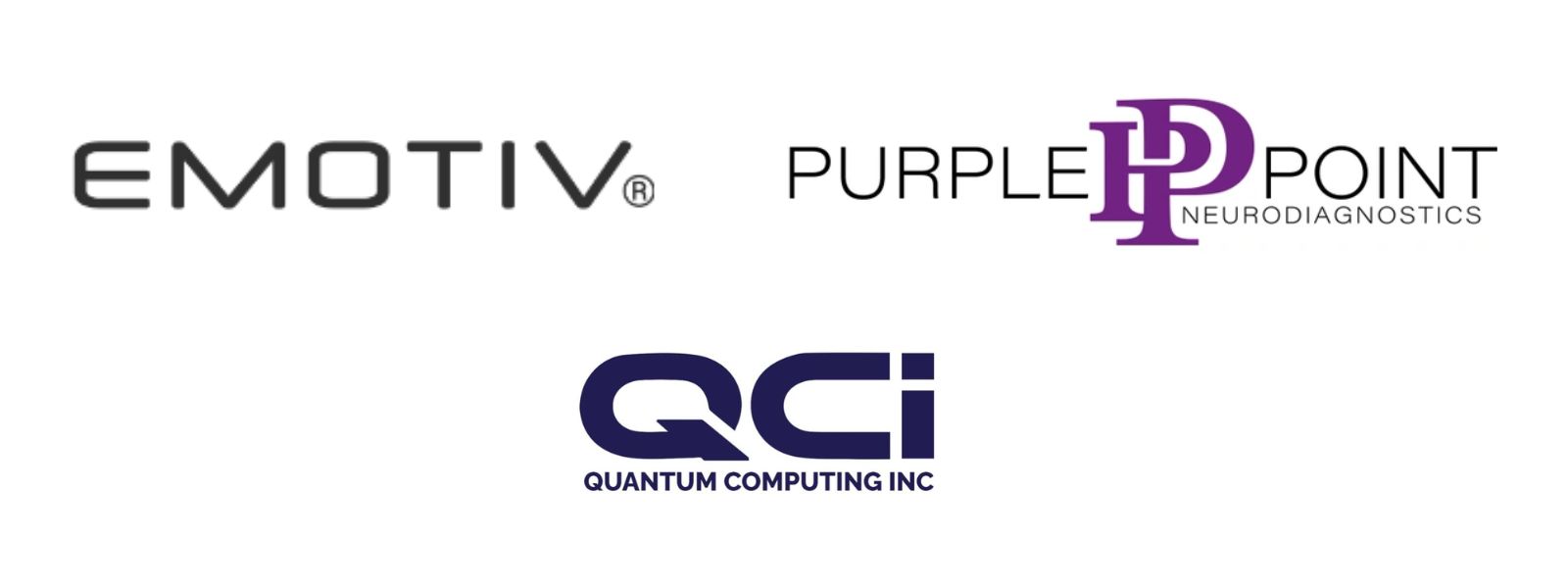

Who We Are
As part of the USF Data Institute and in partnership with the School of Nursing and Health Professions, the Clinical Neuroinformatics & AI Laboratory (CNAIL) improves patient outcomes and promotes care for the whole person.
At CNAIL, we are driven by a collective passion for unraveling the mysteries of the human brain and harnessing the power of artificial intelligence to revolutionize healthcare. Led by esteemed Faculty Director and Chief Scientist, William Bosl, Ph.D., and comprised of a diverse team of neuroscientists, data scientists, engineers, public health and medical professionals, CNAIL is at the forefront of innovation in bridging the gap between neuroscience and AI to treat disorders of the brain.
Directors

William Bosl
Faculty Director and Chief Scientist
wjbosl@usfca.edu
Dr. William J. Bosl is the director of the Clinical Neuroinformatics & AI Laboratory (CNAIL) at the USF Data Institute (DI). A neuroscientist and data scientist, he is a Professor within the School of Nursing and Health Professions and an Affiliate Faculty of the DI. Since 2013, Dr. Bosl has contributed significantly to USF, including founding the MS in Health Informatics program.
Dr. Bosl holds an Affiliate Research Faculty position at Boston Children’s Hospital and Harvard Medical School, where he collaborates on cutting-edge research in neuroinformatics, neurology, psychiatry, and developmental medicine. His work focuses on developing AI algorithms for clinical biomarker discovery, including pioneering methods to identify digital biomarkers for conditions such as autism and epilepsy.
With a background as a computational physicist at Lawrence Livermore National Laboratory and a PhD from Stanford University, Dr. Bosl transitioned to neuroscience in 2005 as part of the Harvard/Boston Children’s Hospital Computational Health Informatics Program (CHIP). There, he collaborated on transformative projects, including identifying neural signatures that predict autism and advancing EEG analysis for epilepsy diagnosis and monitoring. While in Boston, he also earned a PhD in Behavioral Neuroscience from Boston University School of Medicine.
Dr. Bosl’s leadership at CNAIL drives innovative research at the intersection of AI and clinical neuroinformatics, with the goal of improving outcomes for individuals affected by neurological and neurodevelopmental conditions.

Dr. Neha Bhasin
Clinical Director
nbhasin@usfca.edu
Dr. Neha Bhasin brings a rare blend of clinical expertise and technological insight, combining an MD with an advanced degree in Digital Health Informatics from the University of San Francisco, California. Dr. Bhasin brings global experience, having worked extensively in India, where she educated underserved populations on health issues, organized health check-up camps, and managed an overwhelming influx of patients during the COVID-19 pandemic. Her unique expertise enables her to navigate both the intricacies of patient care and the complexities of modern healthcare technology.
As the Clinical Director of CNAIL, Dr. Bhasin is committed to advancing medical research and improving patient outcomes through innovative and forward-thinking approaches. She focuses on expanding the lab’s research and clinical services by building strategic partnerships with leading research institutions and industry leaders. Dr. Bhasin’s research is focused on optimizing clinical patient data, with a particular emphasis on neuropsychiatric disorders. Through the integration of AI and machine learning, she is uncovering new insights and refining predictive models, driving substantial advancements in both research and clinical practice.

Dr. Prajnesh Kumar
Quantum Technology Lead, Quantum Computing Inc.
Dr. Prajnesh Kumar is an expert in quantum optics, photonics, and AI-driven computational models, with extensive experience in high-speed FPGA-based systems and optical computing. As the Quantum Technology Lead at Quantum Computing Inc., he leads research in photonic reservoir computing, quantum random walks, and real-time hardware acceleration for AI applications.
Prior to his current role, Dr. Kumar spent nearly a decade at Intel Corporation as a Systems Engineer and Hardware Engineer, where he played a key role in developing cutting-edge camera, touchscreen, and display subsystems for Intel’s next-generation platforms. His expertise includes high-speed SoC-based system design, embedded computing, and hardware validation, collaborating with global OEM partners to bring innovative consumer electronics to market.
He holds a Ph.D. in Physics from Stevens Institute of Technology, where his research focused on electro-optic reservoir computing and high-speed optical systems. His work spans embedded system design, photonic computing architectures, and FPGA-based AI accelerators, bridging the gap between theoretical quantum models and practical implementations.
Dr. Kumar has published extensively in high-impact journals, including Optics Letters and OSA Continuum, and has contributed to experimental projects in spatial optical computing and neuromorphic AI architectures. As a Visiting Scientist at the Clinical Neuroinformatics and AI Laboratory (CNAIL), he aims to explore the intersection of photonic computing and AI to advance computational neuroscience research.

Elisabeth Merkel
Senior Administrative Director
Elisabeth Merkel is the Senior Administrative Director of the Data Institute at the University of San Francisco. She manages strategic initiatives and operations for the centers and professional programs within the institute, including the Clinical Neuroinformatics & AI Laboratory (CNAIL). Her role includes supporting CNAIL’s clinical operations and research efforts by coordinating resources, partnerships, and programs to help advance its work in neuroinformatics and clinical biomarker discovery.
Partners & Collaborators
CNAIL collaborates with industry pioneers such as Harvard Medical School, Boston Children’s Hospital, Emotiv, Purple Point Neurodiagnostics, and QCi. Together, we are driving advancements in clinical neuroinformatics and artificial intelligence. United by a shared vision, these partnerships enable groundbreaking research and innovative solutions that aim to transform the lives of individuals affected by neurological disorders.
Partners
- Dr. William McGann from Quantum Computing Inc
- Tan Le, Co-Founder & CEO of EMOTIV
- Lucien Kilonda and Teguo Djoyum from Purple Point Neurodiagnostics

Collaborators
- Tobias Loddenkemper, MD, Harvard/Boston Children’s Hospital (BCH)
- Michelle Bosquet Enlow, PhD, Harvard/Boston Children’s Hospital (BCH)
- Kenneth D. Mandl, MD, Harvard/Boston Children’s Hospital (BCH)
- Charles A. Nelson, PhD, Harvard/Boston Children’s Hospital (BCH)
- Kiran Maski, MD, Harvard/Boston Children’s Hospital (BCH)
- Eric London, MD, Mt. Sinai Hospital, NY, and NY State Institute for Basic Research
Partner With Us
Join us in advancing research in neurological and neurodevelopmental biomarker discovery. Your support helps scale our efforts and accelerate real-world impact in understanding and treating neurological conditions.